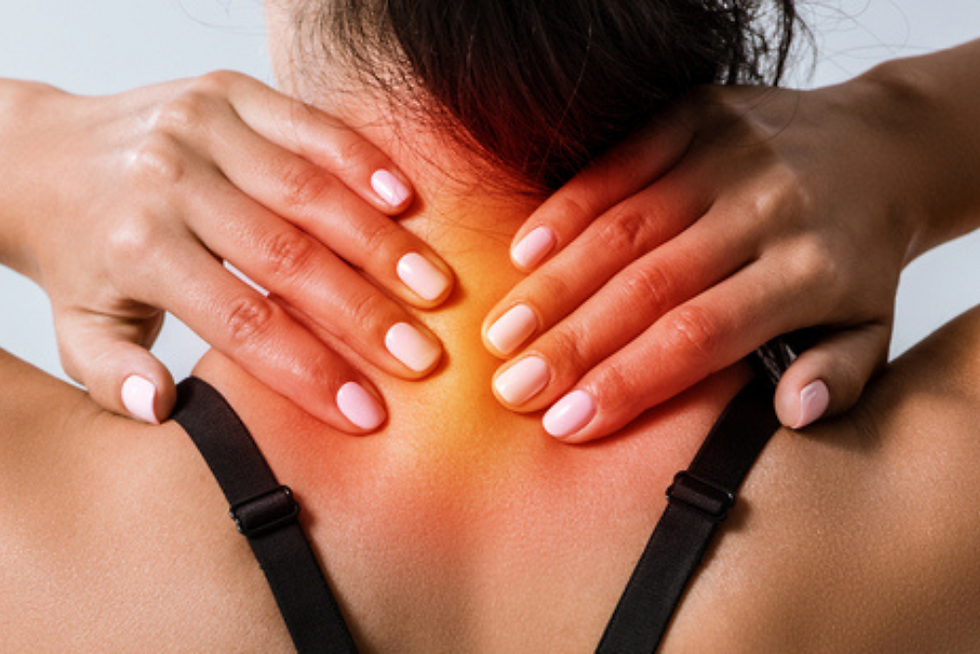Top 3 Causes of Shoulder Pain in Overhead Athletes
- Sep 17, 2025
- 3 min read

Are you an overhead athlete dealing with shoulder pain that just won’t go away — no matter how much you stretch, ice, or rest?
Whether you're spiking a volleyball, throwing a fastball, or pushing through your next CrossFit WOD, shoulder pain can sideline your performance and affect your daily life.
At Peak Performance, we see this all the time — and more importantly, we know how to help.
Let’s break down the top 3 most common causes of shoulder pain in overhead athletes, how to recognize them, and how we treat them so you can get back to performing at your peak.
1. Rotator Cuff Strain or Tendinopathy
The rotator cuff is a group of small but powerful muscles that stabilize the shoulder joint during overhead activity. With repetitive motion — think serving, throwing, or pressing — these muscles can become inflamed or develop microtears.
What to look for:
Pain with throwing, serving, or overhead lifts
Weakness or fatigue lifting overhead
Pain that gets worse after activity, not during
How we treat it at Peak Performance:
Active Release Technique (ART) to release tight muscles and break up adhesions
Class IV Laser Therapy to reduce inflammation and speed up tissue healing
Targeted Rehab to strengthen the rotator cuff and restore proper shoulder mechanics
2. Shoulder Impingement
Impingement happens when tendons or bursae in the shoulder get compressed due to poor joint mechanics or inflammation — especially common with repeated overhead movement in poor positions.
What to look for:
Sharp pain with overhead movements
Difficulty sleeping on the painful side
A pinching or “stuck” feeling when lifting your arm
How we treat it:
Joint Mobilization & Adjustments to improve shoulder positioning and space
Dry Needling to reduce deep muscular tension
Class IV Laser Therapy to calm inflammation and promote healing
Rehab Exercises to restore shoulder stability and control
3. Scapular Dyskinesis (Poor Shoulder Blade Movement)
Your shoulder blade (scapula) plays a critical role in overhead mechanics. If it’s not moving correctly, other muscles — like the upper traps or rotator cuff — have to overcompensate. That leads to breakdown and pain.
What to look for:
Shoulder fatigue or burning during longer workouts
Pain that gets worse with high-rep movements
One shoulder sitting higher or moving differently than the other
How we treat it:
Corrective Exercises to retrain proper scapular rhythm and control
Active Release Technique to target restricted muscles
Laser Therapy to reduce inflammation and speed tissue repair
Joint Mobilization to restore full shoulder blade motion
We Don’t Just Treat Pain — We Fix the Root Cause
At Peak Performance, our rehab-based chiropractic care doesn’t just mask pain — we address the movement patterns and tissue dysfunctions behind it. Whether it’s CrossFit, volleyball, baseball, or your weekend league, we help you move better and recover faster.
✅ Identify the root cause
✅ Fix soft tissue restrictions
✅ Restore mobility and control
✅ Rebuild strength where it matters most
Shoulder Pain Slowing You Down? Let’s Fix It.
We help volleyball players, pitchers, CrossFit athletes, and active adults every day recover from shoulder injuries and stay in the game. If you’re tired of dealing with nagging shoulder pain, it’s time for a smarter approach.
📞 Call us at (785) 842-7325 or book your appointment online here
📍 Located at Peak Performance Health Center in Lawrence, KS
Let’s get you back to performing at your peak.
.png)




Comments